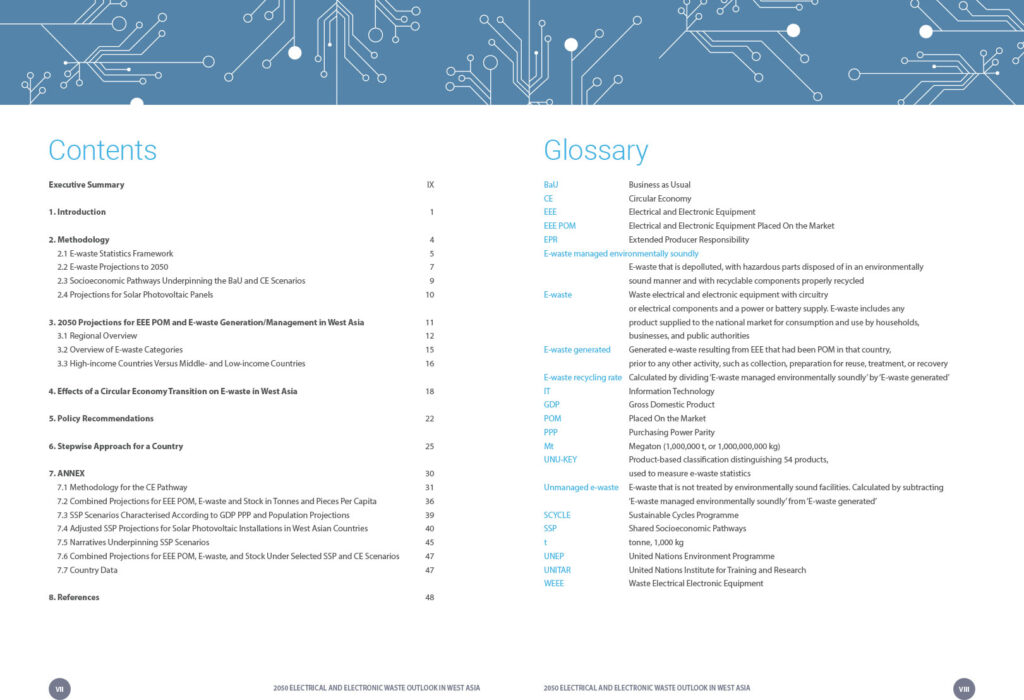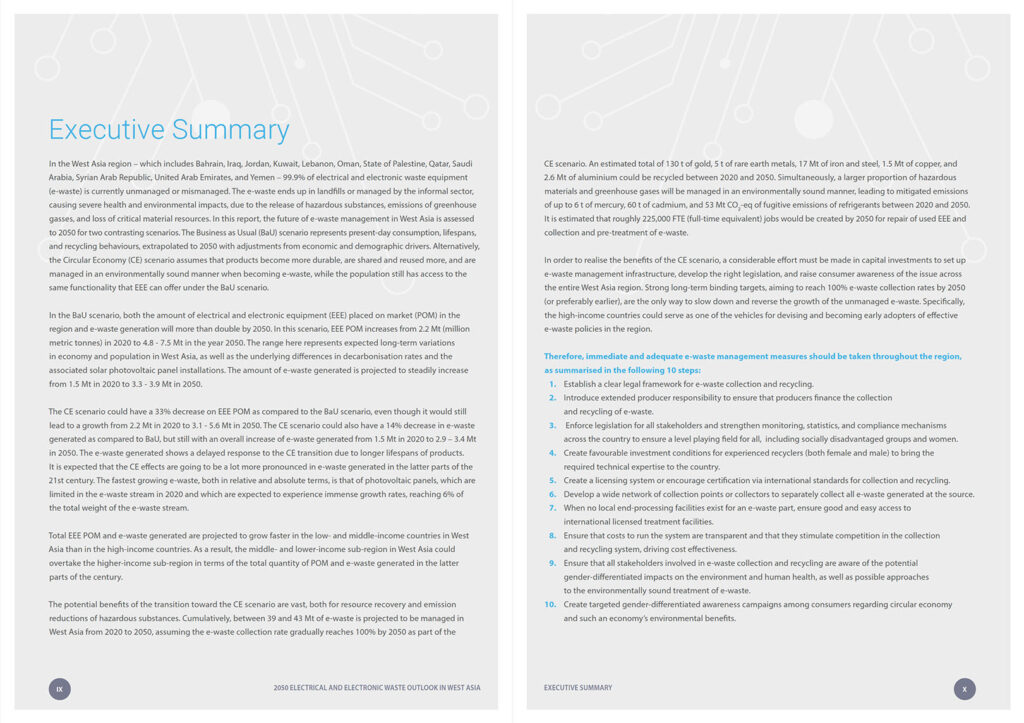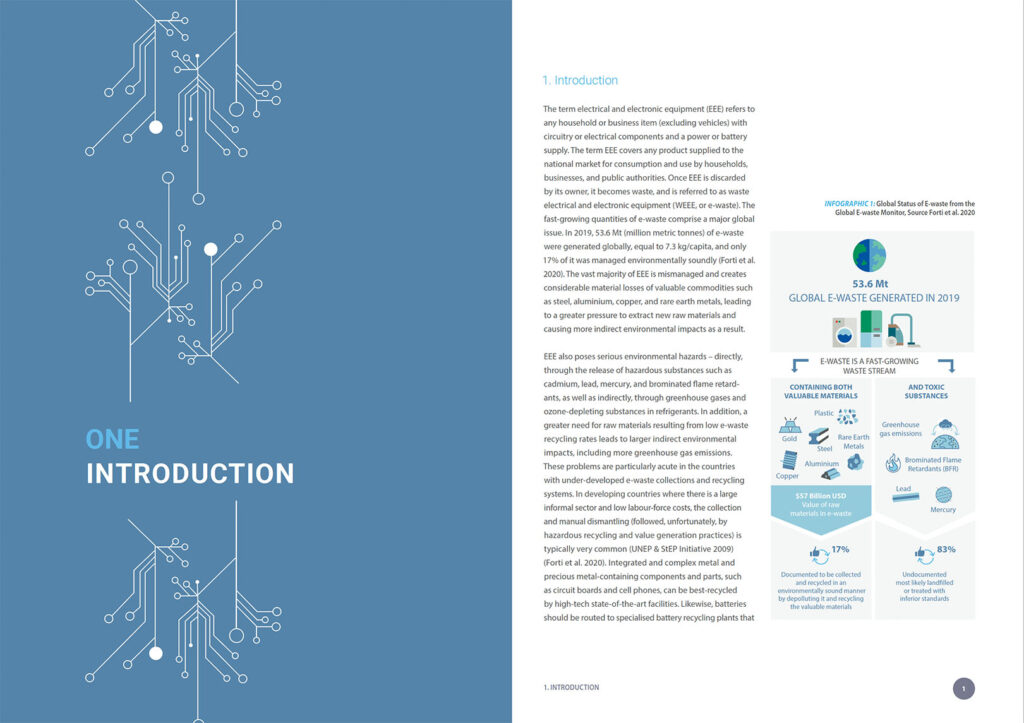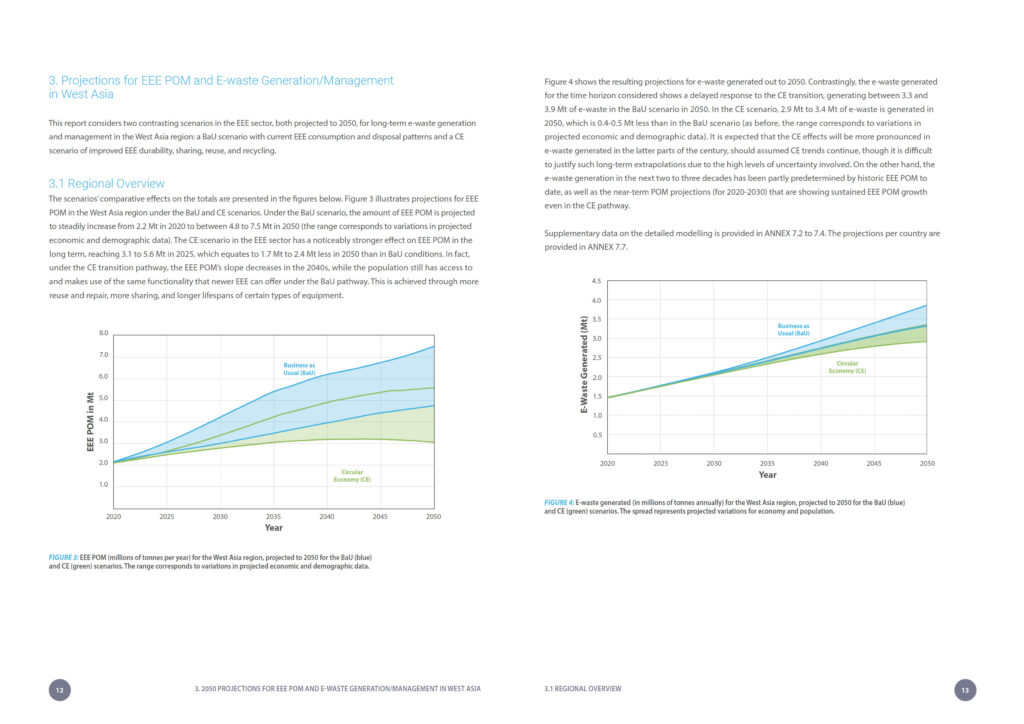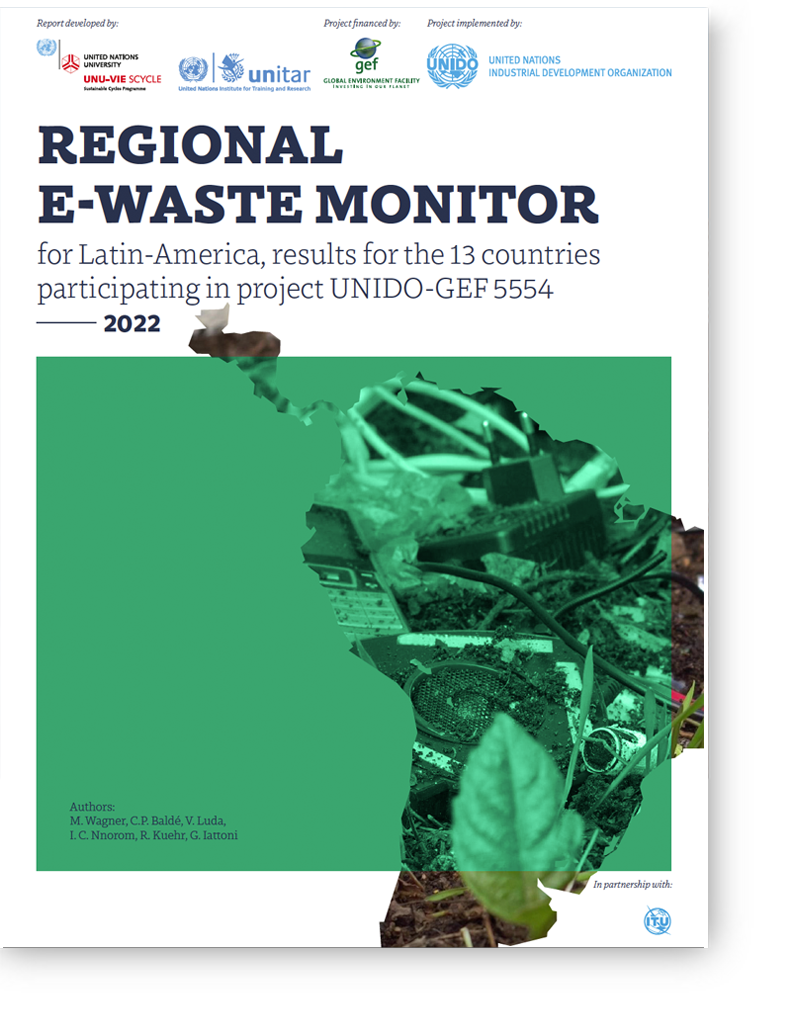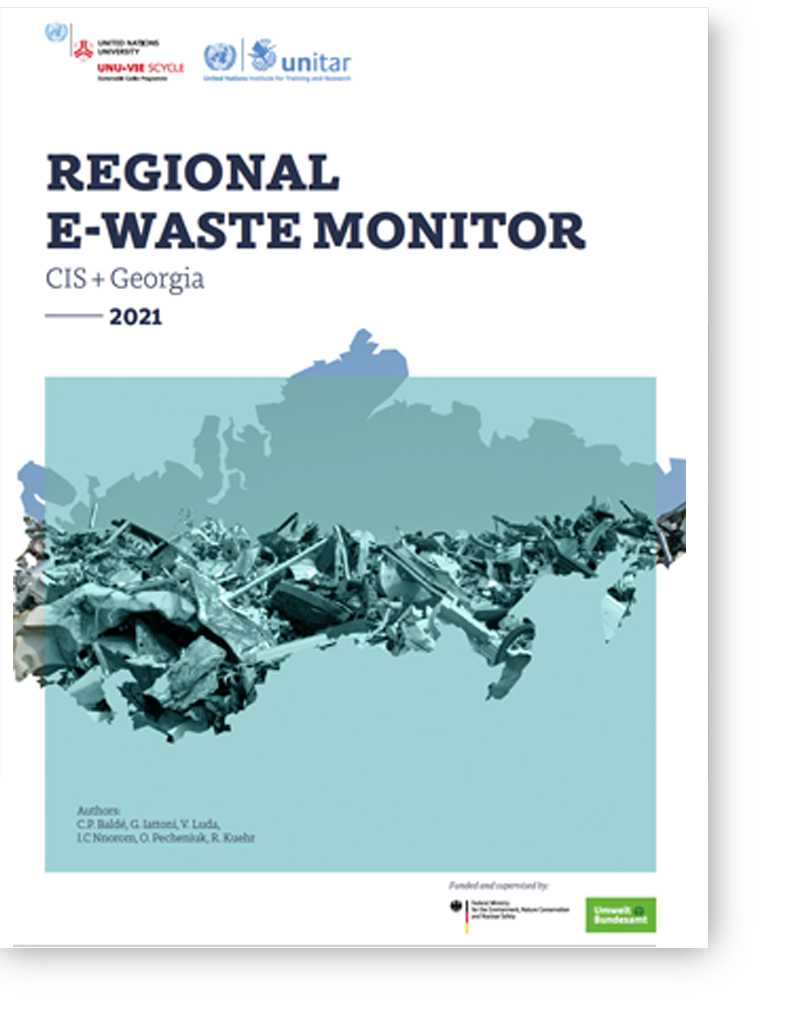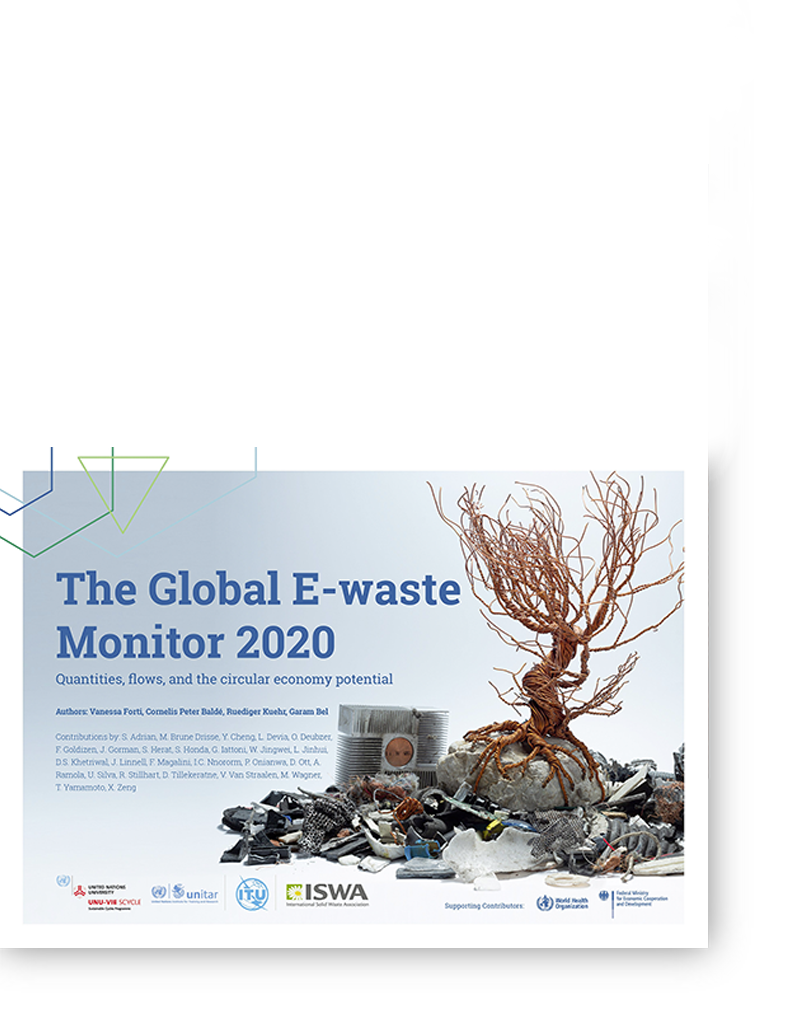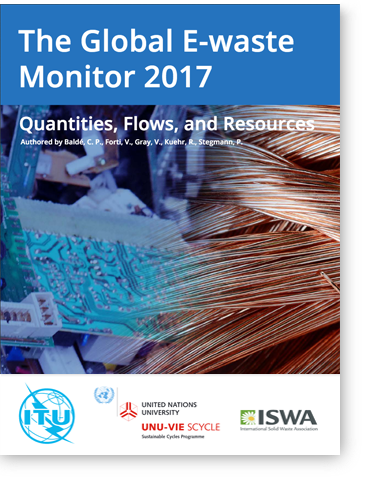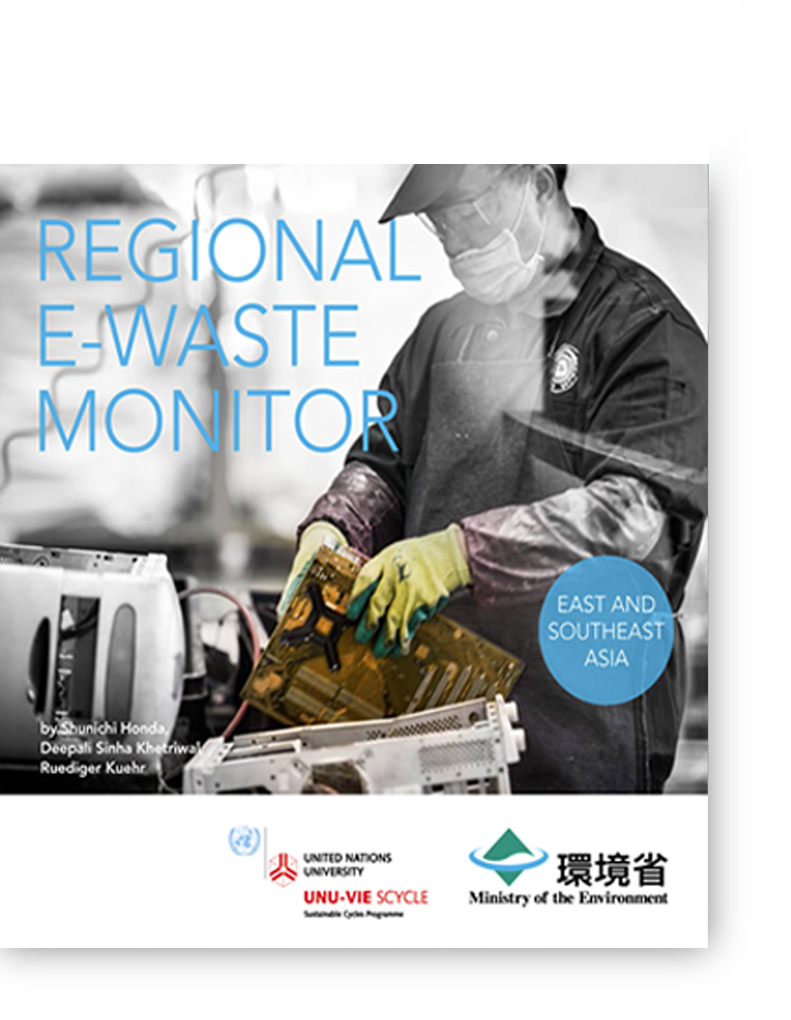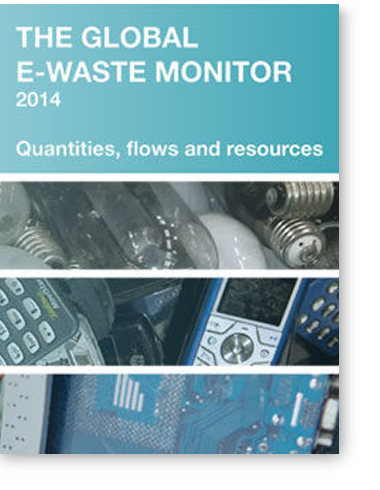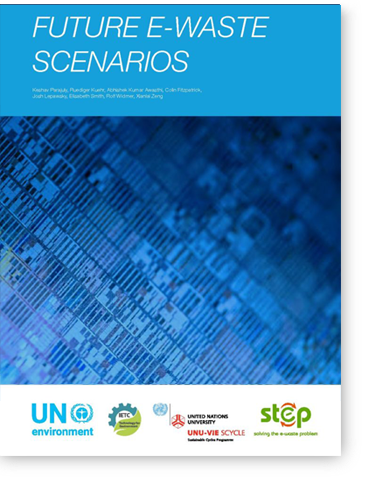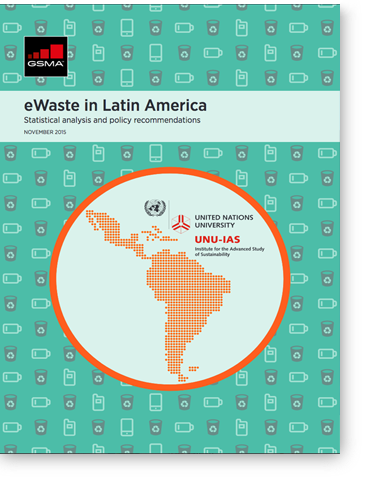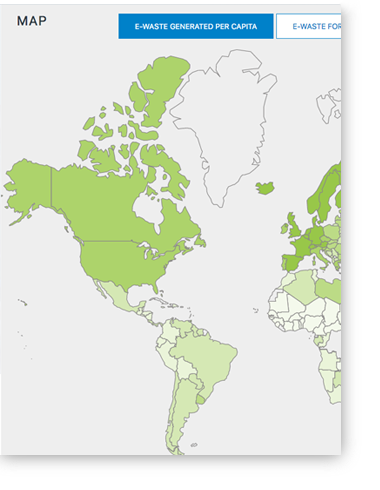UNEP-UNITAR 2050 Electronic and Electrical Waste Outlook in West Asia
The joint UNEP-UNITAR 2050 Electronic and Electrical Waste Outlook in West Asia provides two contrasting future scenarios for e-waste management in Bahrain, Iraq, Jordan, Kuwait, Lebanon, Oman, State of Palestine, Qatar, Saudi Arabia, Syrian Arab Republic, United Arab Emirates, and Yemen. Today, 99.9% of electrical and electronic waste equipment (e-waste) is currently unmanaged or mismanaged. The A transition toward a circular economy approach will have positive impacts on both the reduction of 33 per cent electronic and electrical equipment placed on the market, 14 per cent less e-waste generation and an estimated total of 130 t of gold, 5 t of rare earth metals, 17 Mt of iron and steel, and many other materials could be recycled to 2050. Simultaneously, a larger proportion of hazardous materials and greenhouse gases will be managed in an environmentally sound manner, leading to mitigated emissions of up to 6 t of mercury, 60 t of cadmium, and 53 Mt CO2 equivalent. It is estimated that roughly 225,000 full-time equivalent jobs would be created for repair of used EEE and collection and pre-treatment of e-waste.
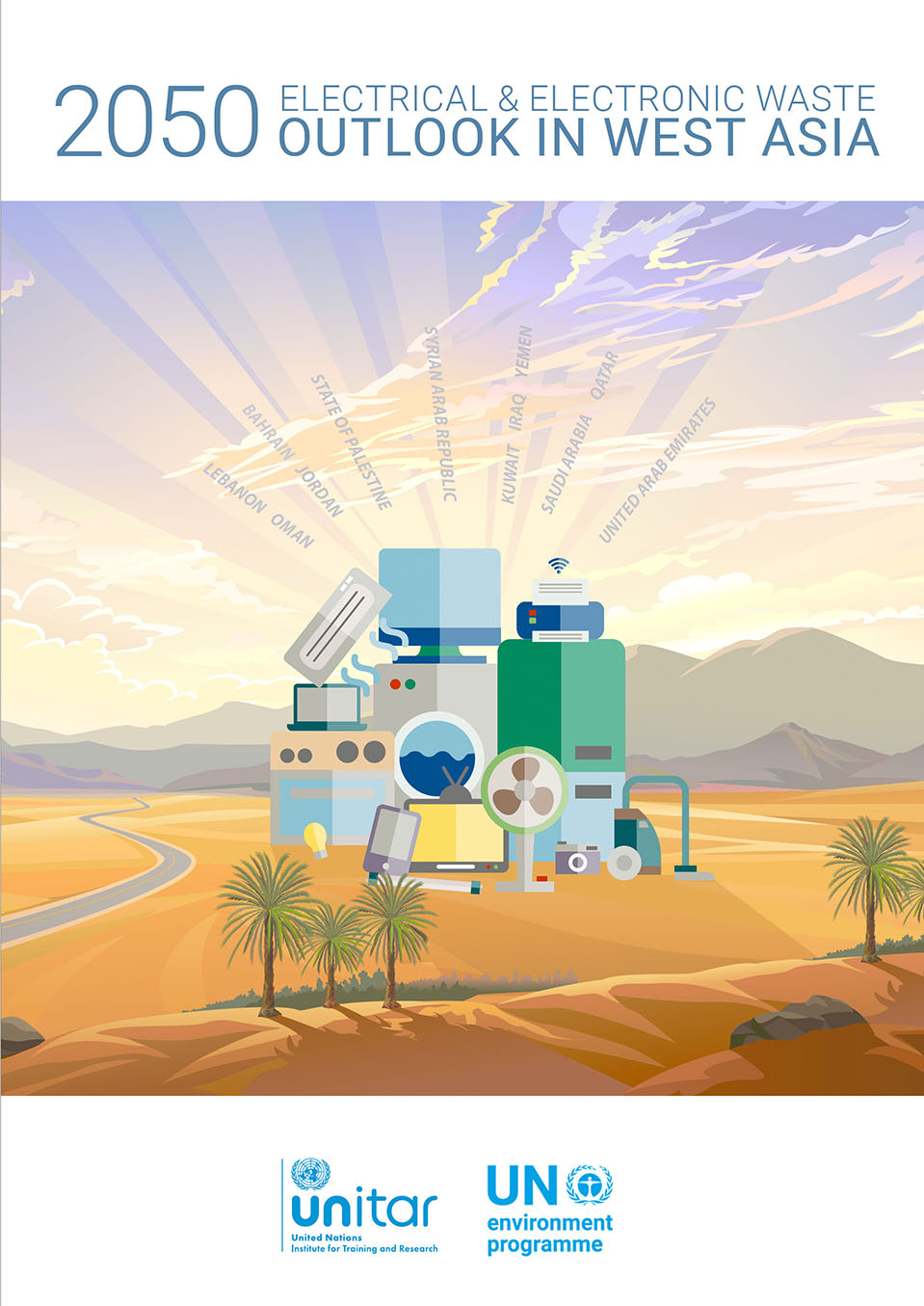
Monitor Features
1. What is E-waste?
Definition, product categories, disposal routes, key issues
4. Statistics
EEE POM and E-waste Generated, Categories, ESM
7. Common Issues
Five Driving Reasons
2. Methodology
Statistics, Management Assessment,
Sources
5. Transboundary Movement
Policies, Quantities, Issues and Impacts
8. Recommendations
3. Regional Overview Legislation and Systems
Status, International Agreements, Stakeholders, Projects
6. Management Assessment
Comparative Performance Review
9. Country Profiles
Book Preview
Other E-waste Data Resources
E-waste in Latin America
• eWaste in Latin America 2015: Statistical analysis and policy recommendations.
